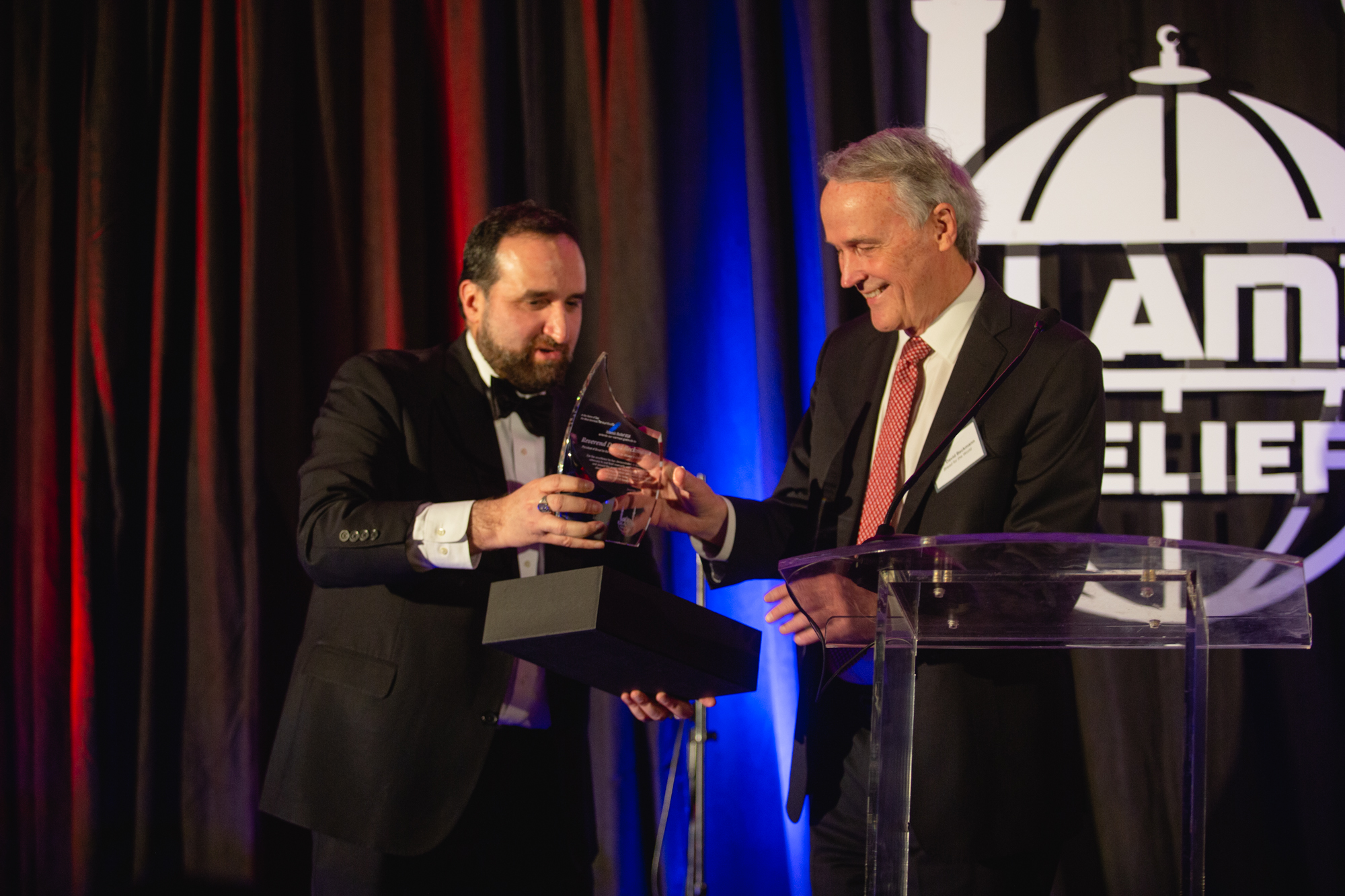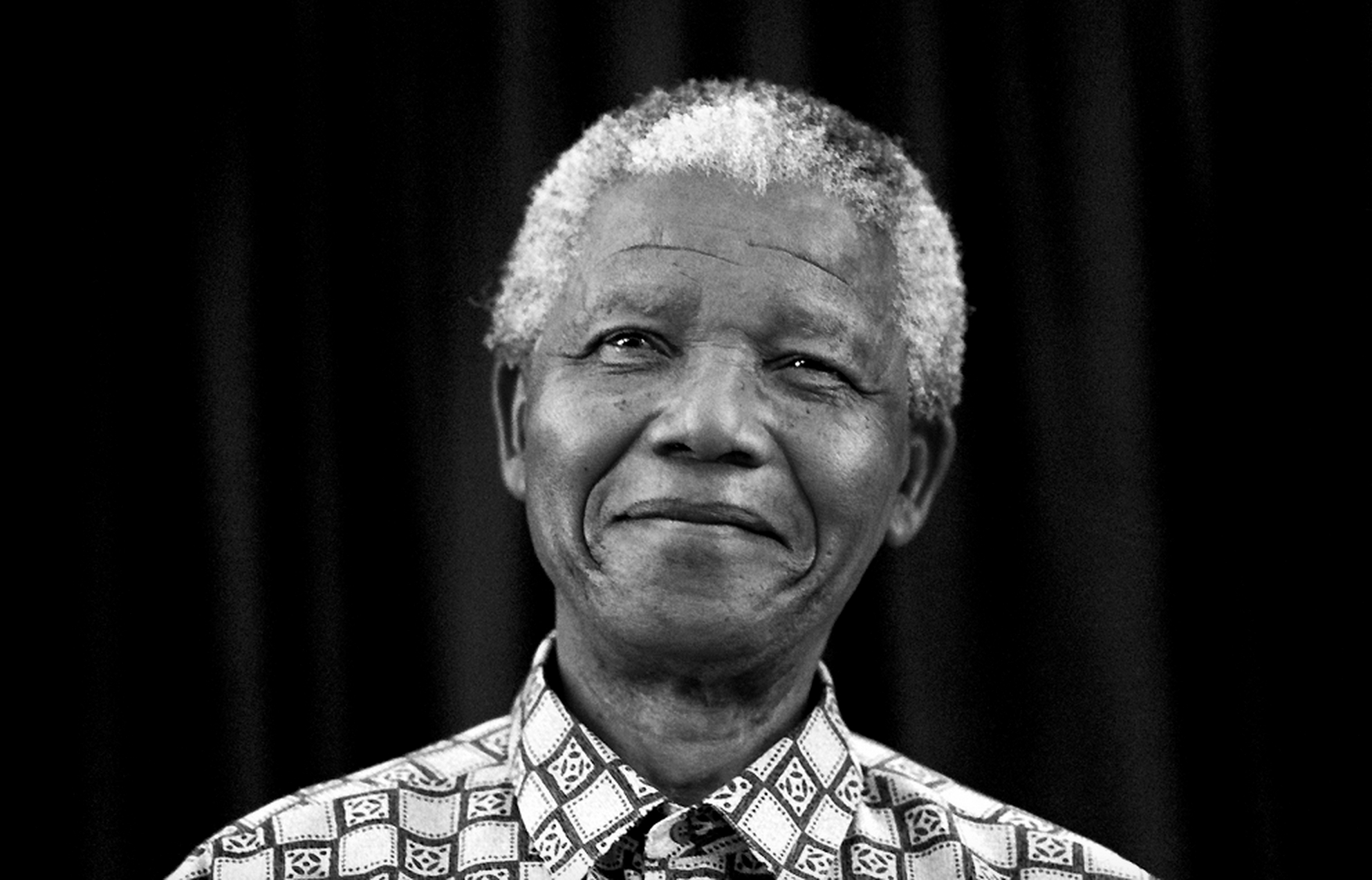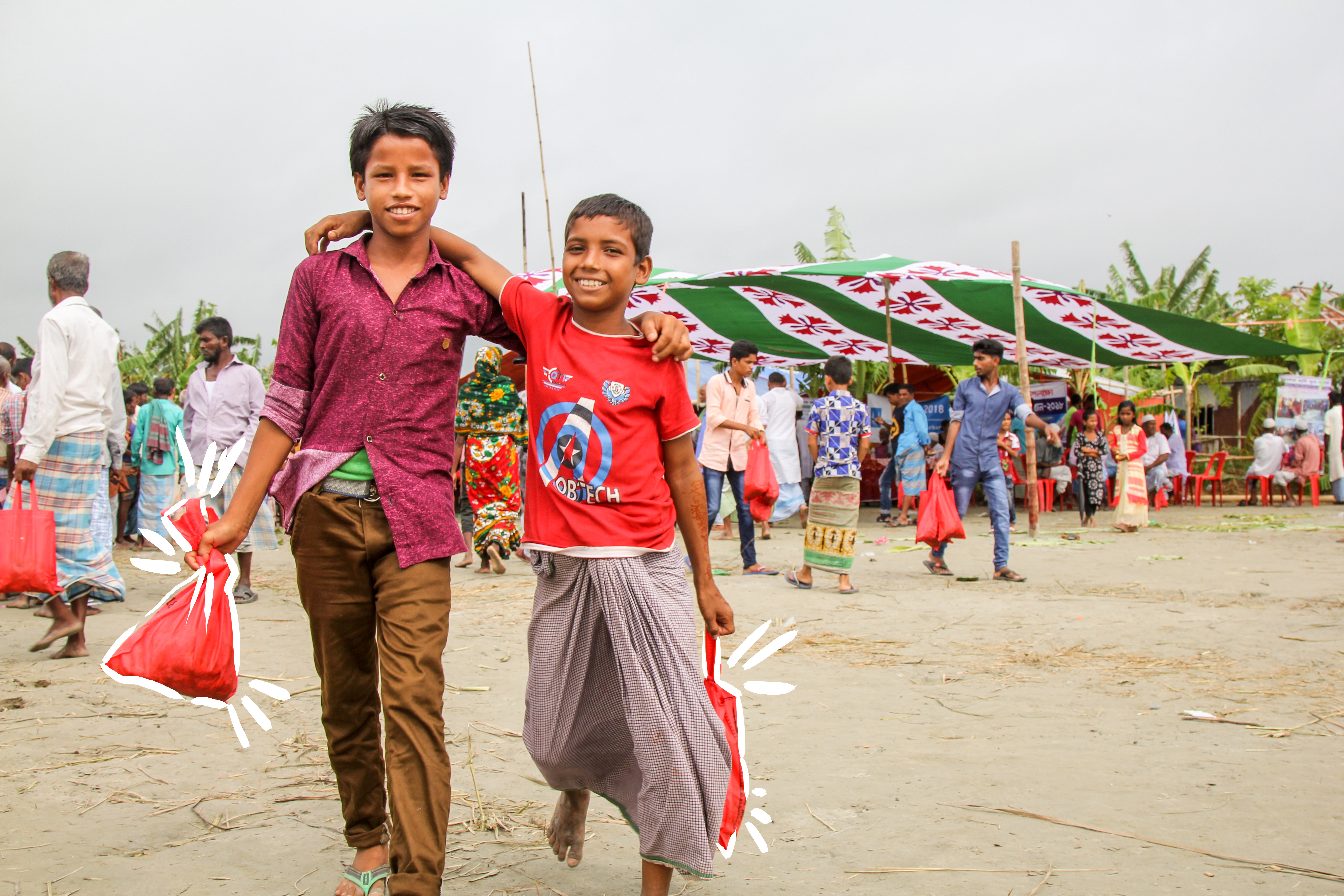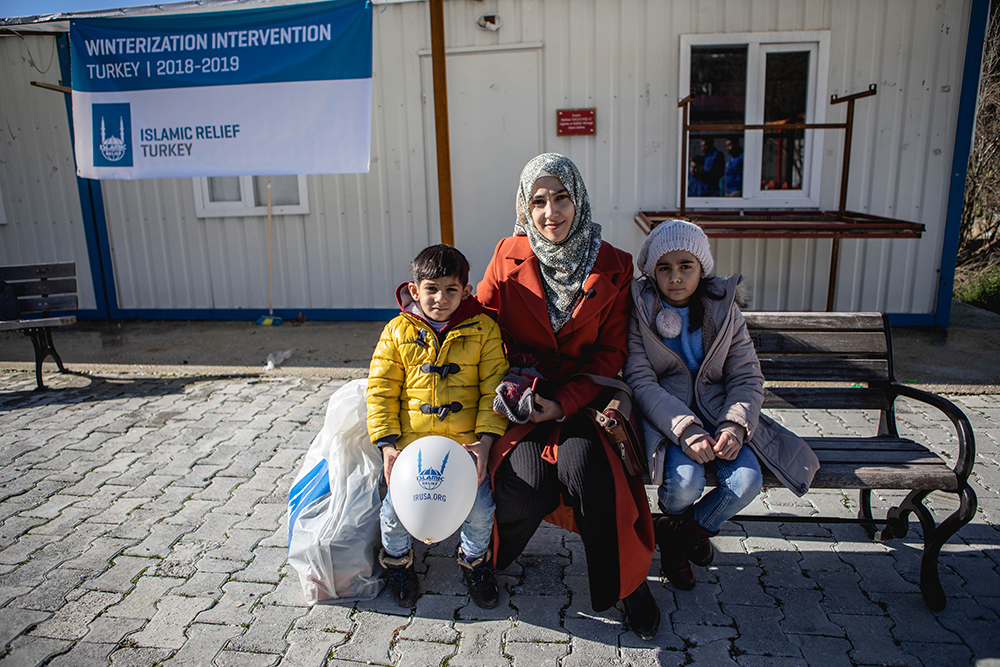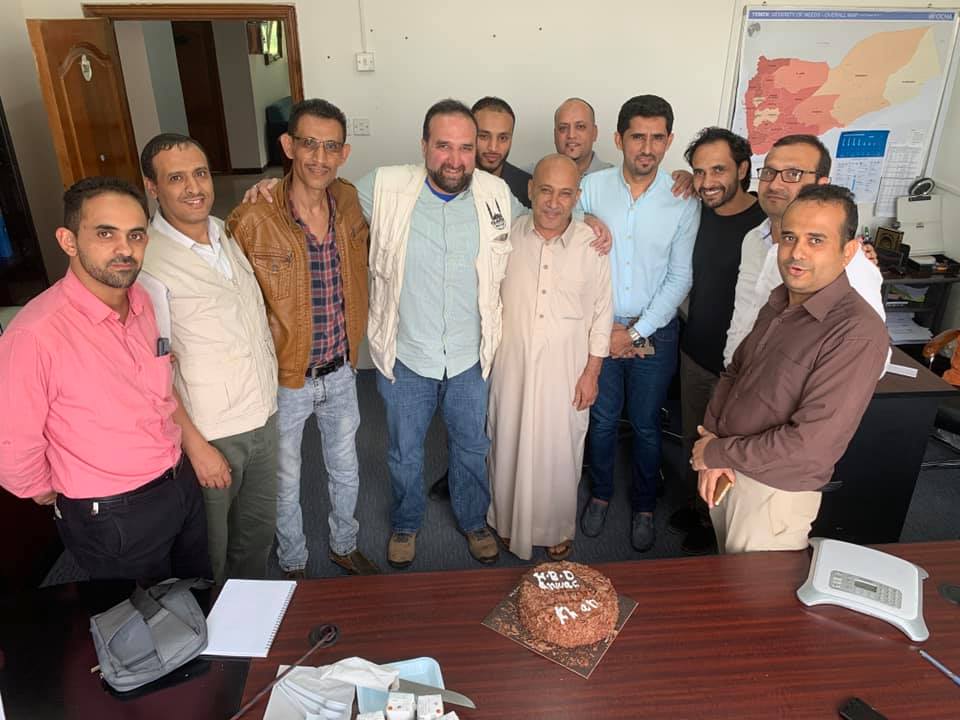
Yemen in our Hearts: IRUSA President Anwar Khan’s 12-Day Diary
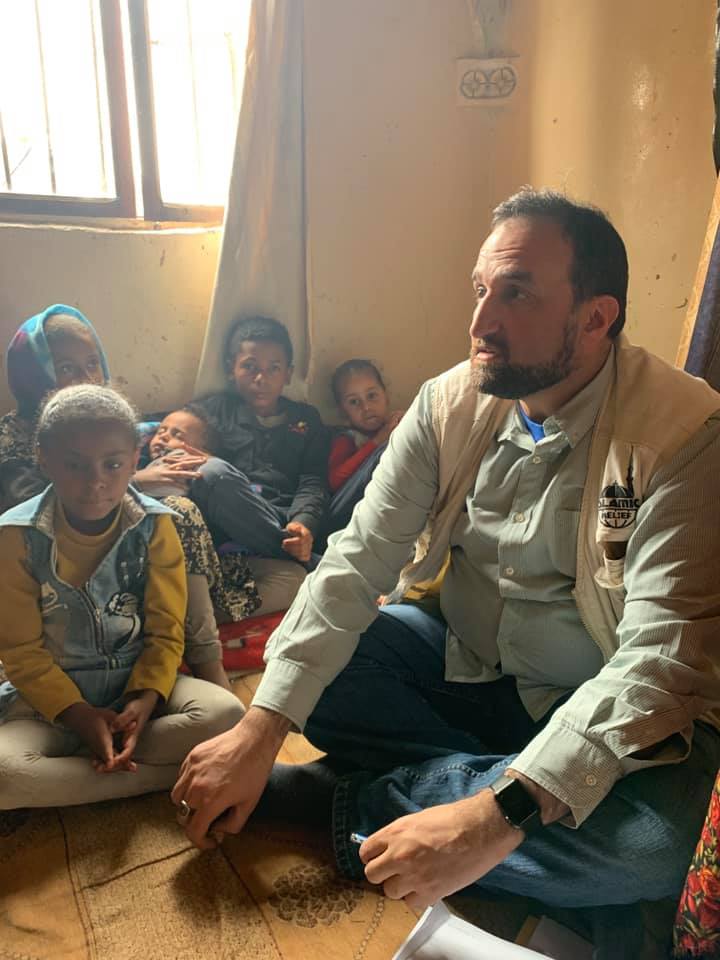
Too many times it can be easy to forget that during the current era in which we live, Yemen is suffering the worst humanitarian crisis the world has seen in decades. Continuous war has pushed adults and children in the country out of their homes and into the grips of famine and disease.
I traveled to Yemen recently to see firsthand what families are going through. I also witnessed what Islamic Relief USA’s humanitarian aid contributes, through the help of ordinary people who are compassionate enough to donate toward this unthinkable situation. Below, I share with you my reflections from the 12 days I spent in Yemen in the summer of 2019. I pray they remind us of all of what’s at stake.
Day 1
I arrived, surprised by the security protocols in place at Islamic Relief Yemen. One of our drivers who was a contractor was shot fatally by a stray bullet soon before I arrived.
I went to a hospital and met children who were merely five years old and younger, yet suffering from malnutrition, cholera, and for some—both. Others were suffering from diarrhea. The combination of malnutrition along with dysentery is a deadly combo: you can die very quickly.
There was a father sitting on the floor of the hospital with a child who would die if he did not receive an operation, that he could not afford. The hospital helped him with a Facebook page, but so far he has not been able to raise much.
Some parents come and just want to leave their children at the hospital, because if they go home with them they will die.

The premature infant ward in the hospital had baby incubators that were missing ventilators, monitors, and other essential equipment. There was a room next door with broken equipment. The last time one incubator had been repaired was over 19 years; it was falling apart. One of the malnourished babies held my finger and would not let go. I heard crying for hours, children in pain.
As I sat, the medical staff remarked that I seemed depressed and exhausted. After 26 years of visiting humanitarian crises, these scenes still affect me as if it is the first time. If they don’t, then that is a bigger problem.
Day 2
On Day 2, I was to head for the city of Hodeida. We left at 5:30am for a 6-hour drive from Sana’a to Hodeida. We passed 30 checkpoints. We needed local approval and to notify the UN and Coalition Forces that we were traveling so the road would be deconflicted (made for safe passage). We could not drive straight, but had to take a detour to pass by the frontline. When we arrived in Hodeida we felt the heat. It went from 65 F to 105 F, as we went from 7,000 feet up to near sea level.
We were asked to see the largest functioning hospital. It is 2 KM from the active front line, and stray bullets still hit the hospital. The staff wondered if we could help them build a wall to protect from bullets.

The staff were most gravely concerned about malnutrition, diarrhea, diphtheria and cholera. Some of the children were starving.
One was severely malnourished and had TB. Another baby was in an incubator, waiting for a bed in the Pediatric Emergency Ward. That child was waiting for one of 12 beds in the Therapeutic Feeding Center.
There is a painful backlog of patients. Many are just sitting on the floor of the corridor, waiting with their mothers to get a space.
Another child was brought in the morning, tested for cholera and was being treated. She was malnourished and had cholera. Without treatment, she could have died in 24 hours. Last month alone, there were 433 patients in the Cholera Clinic, and 60% of them would have died without treatment.
Day 3
We drove in the early morning for three hours outside of Hodeida to Al Zuhra district. For the last leg of the journey you have to travel by foot, donkey, or 4-wheel drive. There are 1500 families who live there and 500 who have been displaced by the fighting. The women, children and elderly spent four hours by donkey fetching water, even though the water well is 2 km away.

Half of the children leave school halfway through the day to get water. That is 150 children. Instead of the mothers helping on the land, or earning money, they are spending time fetching water. Even the elderly with no kids have to spend four hours fetching water.
We know this water is not as clean as it should be, and that it may lead to water-born related diseases. I saw this yesterday in the hospital where children were suffering from malnutrition, diarrhea, and cholera.
There was a functioning water well and pump in the village that could provide water to 14,000 people. However since the crisis started in 2011, the government has not been able to maintain it. This got worse in the conflict in the last four years.
It will cost $75K to rehabilitate the well, have a solar powered pump, 50 foot high water tank, and pumping the clean water to the village. From there it will go to each house.
Once this project is complete, the children can go to school, because all they have to do is turn the faucet on.
Once this project is complete, fewer children will get cholera.

In the district Islamic Relief USA has built toilets, and trained people to maintain and use them properly. This has decreased cholera cases, saving lives.
The question we must ask is: why wait for these children to travel hours to go Hodeida to get treatment for cholera and diarrhea when we can prevent these diseases where they live?
Only $5 a person—that’s what it costs to rehabilitate the water system. That is not per day, month, or year. That is a one time $75K cost that save lives, help kids to go to school and help their mothers to earn extra income for 14,000 people for many years.
The displaced people are reliant on the food parcels we distribute with the UN WFP, as are some of the host community. We need to give them food, but this clean water system will also give them better health, education, more income, AND save lives.
Day 4
Jummah Mubarak – It was the blessed day of Friday. Please pray for the people of Yemen and in war zones around the world.
As we drove back 6 hours from Hodeida to Sana’a, we passed 30 checkpoints and stayed away from the frontline. I had a chance to reflect on yesterday afternoon. After visiting the water facilities in the morning in Zohra District, we went to an Internally Displaced Persons (IDP) camp. IDP’s have often forced to flee, but have not crossed international borders, so are not technically refugees. No one UN body technically has a mandate to help them. UNHCR does what it can, as does UN WFP and numerous other UN bodies.

IR Yemen has partnered with UN WFP to provide food to IDP’s and some of the host communities, who are often themselves in great need.
There are an atrocious 2 million people displaced, but let me tell you about eight of them.
Abdu fled the fighting from the Yemen/Saudi border to Hajjah and then again to Hodeida province. He is paralyzed, needs dialysis monthly, and is with his five children, wife and mother. He depends on the generosity of other IDPs to send him by road three hours to get dialysis in Hodeida city.
He lives in a shack, where temperatures were over 115F recently. His family relies on the UN WFP food packs we distribute to survive.
[>>>Click here to give food to Yemen now.]
This is just a glimpse at some of the struggle of eight out of the 2 million who are forced to flee from their homes, by no fault of their own.
Day 5
I spent the day in the capital, Sana’a. After spending the week talking to people who need assistance, or are getting assistance, I now spoke to aid professionals.
They came from faith and secular organizations. Some had been here for seven years and remember the initial evacuation after the conflict began. They have left their families behind to assist in the worst humanitarian crisis in the world—a crisis we are not hearing much about.
There is a need for humanitarian and development projects in Yemen. But often it takes months to get the relevant approvals, especially in development projects. Aid organizations have to negotiate safe spaces with both sides of the conflict to reach people in need on both sides. Permission is needed to travel from one governorate to another and multiple checkpoints have to be passed. There is a lot of red tape.
There is a concern for a potential shortage of institutional funding from governments for next year. Even in some of the hospitals this year, they get full support for some departments, but have gaps in funding for other departments.
The situation for Internally Displaced Persons (IDPs) is severe, and many have been forced to flee several times. We unfortunately do not hear much about the worst humanitarian crisis in the world. If we heard more, inshallah maybe there would be less conflict.
Day 6
We left early for Al Haymah Al Kharijiyah district in San’a Governate. We were met on the side of the road by locals who were all armed with guns to show us our local water project. Everybody in the area walks around with guns.
Our local engineer showed us the water scheme. Our main water engineer in Sana’a is an expat and he found it very difficult to travel outside of the capital. We hired a local engineer who shows him by WhatsApp what the situation on the ground is and he receives directions from Sana’a.
IR Yemen built several water schemes in the area. I visited one of these water project in Al Haymah Al Kharijiyah. This was funded by IR USA, Catholic Relief Services and Trocaire (French NGO). Water was 250 meters below the surface and there was a bore that had to be finished. The bore well was finished and solar power panels were added to generate power.

There is a control room which controls the water pressure to make sure it can travel 2 km up rocky hills to a large 50 cubic meter water tank, from there it travels through metal pipes downhill to different water points. Instead of spending six hours daily climbing hills to fetch water every day, the children can now go to school. The water they collected was unclean and made many of them sick.
The number of diarrhea/cholera cases has gone down from 50/month to 7/month in this area. The water was so clear in the water tank (50,000 liters), I could see the base of the water clearly several meters below. The children are going to school more and the primary health facility has less patients. Before they were overflowing in tents outside the clinic. The tents are still there, but half empty.
Inside the clinic all the hospital beds are taken with children suffering from malnutrition. There were more patients here than in some of the big city hospitals, because many of these kids can’t afford to, or are unable to travel to the bigger hospitals. They try to do what they can with the simple cases, but with the more complicated cases, often the child dies. Malnutrition with cholera can kill a child in 24 hours.
The local community was very appreciative of the water system and the medicine we provided to the clinic in the past. However they are asking for more food and medicines
There are 1.3 million suspected cases of cholera in Yemen.
There are 1.3 million suspected cases of cholera in Yemen and there have been 3,400 deaths from cholera. These were unnecessary. In Yemen there is a deadly mix of conflict, malnutrition and cholera that kills many, especially the young.
Please pray.
Day 8
We travelled early morning again from Sana’a to Aden. Even though it is one country, it took us six hours, for a plane journey that was under an hour. It was like leaving and entering a foreign country and this was an internal UN flight.
On my way out they asked if I was Syrian; apparently that may have been problematic. I replied saying my father was Pakistani, and they seem bemused. There was also a delay for my CPAP machine, which is for my sleep Apnea. They had never seen one before, after some time they finally allowed us to take it. When we arrived in Aden, all the passengers waited for some time, until we were all given our passports back at one time.
I was surprised by the destruction in Aden. There was intense fighting here and the city changed hands. I grew up in Birmingham, UK, with friends from Aden. I always wanted to come, but did not expect to be here to help in humanitarian work during a conflict.

Day 8
Another early morning: we left Aden for Lahj province. People fled the fighting to this province, which is next to Aden. It is cheaper here and there is more land available. We met people who fled from Taiz Governorate and other areas.
We visited a health unit, which was rehabilitated by IR Yemen, through funding from IR Sweden, which it got the Swedish Government. We then handed over the health clinic to the local health authority. They found the health staff and Save the Children manage the clinic, pay for medicine and medical equipment. All this work was done with consultation of the local community.
International and local organizations work with governments to support locals and Internally Displaced Persons in Need (IDPs). This clinic is the only health facility in a wide catchment area. They receive over 100 patients a day, mostly women and children. As we saw in other clinics/ hospitals in Yemen, most of the patients were children with malnutrition and/or cholera.
At the clinic they asked us to add a wall for security and expand the bathrooms from two or more. This would require extra funding.
After the clinic we went to the IDP camp. IR USA paid for food assistance here three years ago. The UN WFP gives food vouchers. IR Sweden through SIDA funds food distribution currently in this IDP camp through IR Yemen. People have been here for years in tents. It is over 100F, with no electricity. When it rains that does not bring much relief, because people can not leave their tents, with all the mud.
We went further into Lahj province to visit a solar powered water system. 5,000 people now get fresh, clean water with clean energy. Before they had a diesel generator, which was expensive to run and constantly broke down. Now with the extra electricity that is generated, it provides electricity for lights, fans, and refrigerators in the village for a few hours. The refrigerators provide much needed ice.
At this time it is vital that we enable as many people as possible to get clean water, so they don’t suffer from water borne related diseases and then need to go to the clinics. By supplying food security, less people will have malnutrition. Malnutrition and cholera can kill in 24 hours. Our feeding programs, water systems and clinics support are all related to try to bring down the number of deaths of the most vulnerable.
I then visited the IR Yemen office in Aden. I told the local staff they are my heroes. They chose to stay and not flee before, during, and after the fighting.
To me they are like the archers of Uhud who stood their ground. Often in Islamic history we remember those who ran. I like to remember those who decided to stay, even though it was dangerous. To me humanitarian workers who work in the most dangerous places are heroes who stand their ground to help others, often in great harm.
May Allah (SWT) bless them all, and may Allah (SWT) help those in need in Yemen and around the world.
Day 9

It is my birthday mashallah. I spent my birthday traveling by air from Aden to Sana’a. It was uneventful and quick. I spent the day uploading videos, which I wasn’t able to do for days.
My birthday dinner was cabbage, vegetables, fried tuna and bread. It was the simplest birthday meal I can remember. I shared it with two Pakistani expats in the Islamic Relief Guest House. They have left their families to serve the people of Yemen. It was an honor to eat with them. It was an honor to be with the local Yemeni staff, who stayed and did not leave the country during the conflict.
How could I ask for a nice meal when there are so many poor women and children outside the restaurants? How could I celebrate with a nice meal, after visiting malnourished children daily?
I was blessed to have a meal, when others don’t. I was blessed to have a roof over my head and electricity, when others don’t. Above all I am blessed to still be alive, after a heart attack and cardiac arrest two years ago. I felt very blessed on my birthday in Sana’a, Yemen.
Day 10
I heard the news of the bombings in Aden, and I had just been there yesterday. They are expecting possible reprisals tonight, or tomorrow in Sana’a.
Another early start, this time to an Internally Displaced Persons (IDPs) camp outside of Sana’a, but inside the province. I got a travel permit, but unfortunately our local media team did not.
One man I met was Abu Shui, who fled from Sa’dah when his house was destroyed near the beginning of the war from an airstrike. He was given a tent, four years ago, which is now ragged and used as a cover on a shack he has constructed. He used to drive commodities; now, he goes with his 9 kids looking through garbage for plastics he can sell for recycling. His family makes $40/month from this activity. He receives from IR Yemen a food package from the UN World Food Program, worth approximately $80.
His children have not gone to school for four years. His teenage daughter spoke of how she really wanted to go to school. There is no mosque in the IDP camp. He prays at home, but would love to pray in jamaat in a mosque.
He depends on water trucks to provide water to the camp. When they are unavailable, he has to travel for hours for water to the nearest well. IR Yemen with the UN WFP has been providing him food. He is requesting blankets for the cold that will be coming. I met some of his children, Nasser (11), Fatima (2.5) and Yasser (1 month).
We then went to see Fatima and Jameel, who are both orphans sponsored by IRUSA donors. They are ages 7 and 2. Fatima is very shy and did not speak much, Jameel went to sleep. His mother explained how her husband died two years ago from cancer. He was a cobbler, repairing shoes.
For a year the only income was from going through garbage to look for plastic bottles. That was enough for one meal a day. Their mother had to choose which meal in a day she would feed herself and her 7 children. She was behind on rent and was in debt to the pharmacy for her children’s medicine, even after she borrowed money.
Last year, she started receiving the Islamic Relief USA orphan sponsorship for two of the seven children. Now she can feed all of them three times a day, pays her rent on time and has paid off the pharmacy debt.
I mentioned to her that I was an orphan at thirteen and was brought up with my three sisters, and by my mother in Birmingham, England. Alhamdulillah, Allah took care of us and we worked hard. One sister is a doctor, another a dentist, and the other like me is a graduate.
I told her I have spent twenty five years visiting orphans, and longer than that advocating for them, and it was an honor to be visiting her and her family. She cried and said only someone who has gone through these difficulties would understand. The money we give for the two orphans, she spends on all seven.
Fatima and Jameel are just 2 of the 3,900 orphans Islamic Relief sponsors in Yemen. The majority are from IRUSA donors.
I was told then that I had to go to a meeting in the IR Sana’a office. This was not on the schedule, but I insisted we first visit another orphan family that was waiting for me.
We arrived at the office late and I was asked to wait in the Country Directors office. They finally asked me to come to the meeting. As I came in I saw a chocolate cake they had prepared for me. They had found out that it was my birthday yesterday and wanted to celebrate.
After what I had seen in Yemen, I was not going to ask for a celebration. However they said they were my family and wanted to celebrate with me. It was the simplest, one of the happiest and profound birthdays I have ever had. I cannot eat cake, but enjoyed watching them enjoy the cake and had a juice drink.
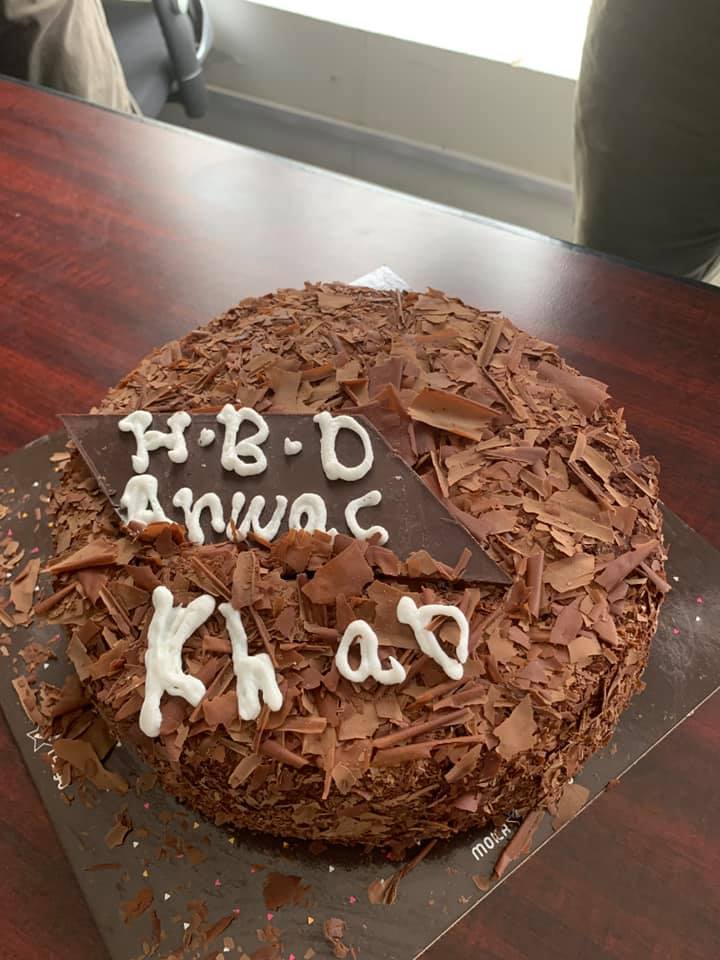
Like they used to say in the MasterCard advertisements: priceless.
Day 11
I spent the day in Sana’a. We made sure we went to a masjid, which was low key. There were still many men with guns though, as is the practice in Yemen. After prayer I went for lunch with one the brothers of a dear friend from the US. The Yemenis are known for their hospitality. Unfortunately I cannot eat red meat, which is a staple in Yemen for hospitality, so instead we went to a fish restaurant. The fish is not frozen, it comes within a day from the sea. Alhamdulillah it tastes good, but the company is even better.
For the people who live here, they go through a lot. Sharing a meal is one of the few pleasures the fortunate Yemenis still have left. Then I met colleagues from other NGOs. There is a great camaraderie here, I would love to see in other countries. They have a united front to support the humanitarian sector.
There are challenges for the humanitarians, whether locals, or from overseas in Yemen. The UN agencies are working well with INGO’s, who are coordinating with local NGO’s. The task is huge. Pray for justice and peace.
Tomorrow is my last day in Yemen, inshallah.
Day 12
It is with a heavy heart that I left Yemen today. I have fallen in love with this beautiful country. The green hills of Sana’a to the beautiful shores of Aden. Sitting down with the brothers on the floor, sharing food from trays, whilst eating with our hands. The cool rain of Sana’a and the intense heat of Hodeida. The breathtaking landscape, whether terraced hills to the dunes of the desert.
I had a heavy heart visiting cholera, diarrhea, and malnutrition wards. We visited them day after day, child after child, baby after baby. My heart rose when I visited water schemes, that have now reduced cholera in the area and again when I saw starving children, slowly being nursed back to life.
It was wonderful to see clinics IR Yemen had built, but still heartbreaking to hold 1 month old babies born in shacks in Internally Displaced Camps. I saw destroyed buildings, but resilient people.
They asked me when I was coming back. Yemeni hospitality is amazing, Mashallah. I am not sure, but if I am needed I would love to come back.
My focus now is not going back, but to let people know what is going on, to be a voice for those whose cries we cannot hear.
Anwar Khan
President, Islamic Relief USA
